Op-Ed: What YMUN Taught Me About Speaking Up
Students gather together at the Delegate Dance, a tradition at YMUN.
Under what circumstances is it okay to break the rules of society? Is the action of doing nothing to save someone’s life equivalent to killing someone? At which point does society get to decide between life and death?
Earlier this month, I explored these questions during lectures, debates, and readings at Yale Model United Nations, or YMUN as it’s officially called. If I said I could confidently answer them, I’d be lying. Engaging in valuable discussions with different perspectives at YMUN was the first step on my journey to addressing these questions.
Taking It All In
Students from 80 schools coming from different cities, states, countries, and even continents debated these and other questions about government and human nature. YMUN taught me the importance of asking big questions and speaking up—even when it’s scary.
YMUN is the biggest MUN conference of the year, but it is still formatted the same. A group of delegates sit at a table together and debate a topic for three days, while drafting resolutions, addressing questions, and writing resolutions. Specialized committees at YMUN, such as my committee on the Annexation of Hawaii, require delegates to take the role of a person rather than a country. Rather than debate a broad topic, they delve into an event or subject in greater detail.
At the Yale Day lectures on “The Trolley Problem” by Philosophy Professor Shelley Kagan and “Consent Theory and Discourse Ethics” by Religious Studies Professor Hureyre Kam, I delved into philosophical discussions with other students lacking a single correct answer. Philosophy has always deeply interested me, mainly because it’s not as straightforward as getting a single correct answer in math or science. There’s no formula for solving a moral dilemma.
This trip was my first debate ever, and it was very intimidating to me because YMUN is a huge event that many delegates with years of experience attend to win outstanding awards for their performance. So I had low expectations for myself.
My initial plan for YMUN was to simply have a good time and observe. I felt no pressure to contribute to the debate, so attending committee sessions came with minimal stress. Instead, I viewed it as an opportunity to learn from the accomplished delegates around me.
Throughout the weekend, I attended seven committee sessions and three lectures. One day included nine hours of debate, with very little time for food or breaks. In addition, I contracted a cold from another student in my delegation. I got a total of 12-15 hours of sleep for the three nights I spent there, and when I returned home I was so exhausted and sick that I slept for 12 hours straight.
At YMUN, everything moved fast. I was always rushing from one place to another, whether it was to meet friends for lunch in the 30 minutes I had, run to a hallway meeting with my other classmates, or find locations for my committee sessions. In addition, the debates moved at a breakneck pace. Oftentimes, you had just seconds to prepare for a speech or answer a question. There was little (if any) time to think, and yet, you had to think of an ideal response and confidently convey it.
Speaking Up During Debate
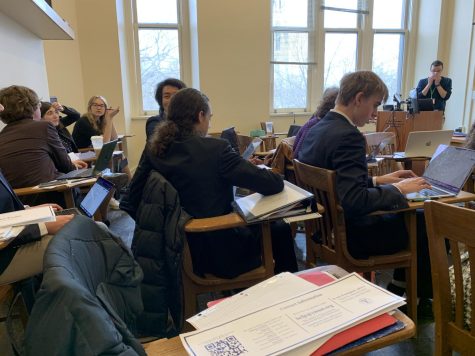
For the first hour of the first committee meeting, I observed in silence, feeling rather unprepared for the demanding pace of the debate. It was unnerving because we were all dressed in formal wear and discussed the debate topics in a mature manner, using respectful dialogue.
Although I had never met anyone there, we would sit together for the next four days, sharing many laughs and precious memories.
After the first hour, many of the delegates had made their first speech and I thought, “I should make a speech. After all, what do I have to lose?” Despite being unsure, I stood up and bravely presented my character’s views on the annexation of Hawaii, the main topic of my role-playing scenario. My short talk was well-received, and I soon settled into a rhythm.
I had to focus on embodying my character’s beliefs, despite them being different from my own. My character was Francis Hatch, a Hawaiian representative from the government of Hawaii who was in favor of Hawaii’s annexation. It was challenging, but it ultimately allowed me to broaden my perspectives and engage in dialogue with different people.
I made two speeches that first day. Taking the risk to speak up, even if it meant saying something historically incorrect and contrary to my character’s beliefs, was incredibly rewarding. I was met with a feeling of relief far greater than had I kept quiet. That day, I learned that having the courage to voice what you believe in, even if it is wrong or different from personal belief, can be incredibly rewarding and help expand your perspective.
When we speak with confidence, it gives weight to our words—even if the message is not entirely accurate. It can be difficult to put yourself out there, but having the courage to do so often leads us to discover new perspectives and understandings that would otherwise remain undiscovered.
The other delegates attending seemed comfortable and at ease with this rapid-fire pace, giving the impression that they were accustomed to responding quickly under pressure. It felt hard to turn to the person next to me and ask her a question because I didn’t want to seem ununiformed. Despite this, everyone was friendly and welcoming, going out of their way to answer any questions without hesitation. Personally, I would rather be in a room with people who are all smarter than me and know much more; that’s when I thrive.
YMUN Discussions vs. School Discussions
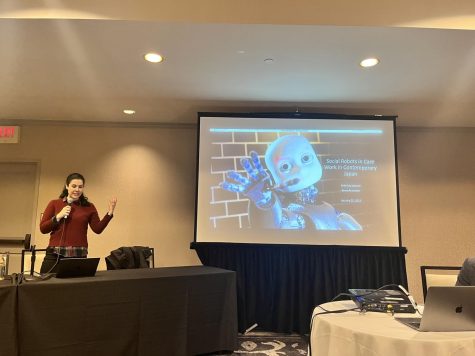
I also took part in a lively debate about cloning during Friday’s Yale Day, when professors hold open classes for delegates. Students expressed their opinions and the lecturer posed thought-provoking questions to draw out further discussion.
In this debate, many students spoke other languages and offered religious viewpoints that I had never discussed before. One girl said that cloning was immoral because “God creates humans, not robots” and that we were not created to make robotic replicas of ourselves.
It was a remarkable sight to see students from around the globe come together in one room, even though many had disparate opinions on various topics. In a school setting, it’s easy to form an invisible barrier when you disagree with someone as no one wants to feel like the “odd one out”. It was refreshing to see a meeting place where everyone was comfortable expressing their opinions.
This was a very different experience than sitting in a lecture hall and listening to a professor speak for 45 minutes. Here, everyone was encouraged to share their thoughts and experiences, allowing everyone the chance to learn from others’ perspectives. No opinion was wrong and everyone had the opportunity to express how they felt without being excluded.
Lessons Learned
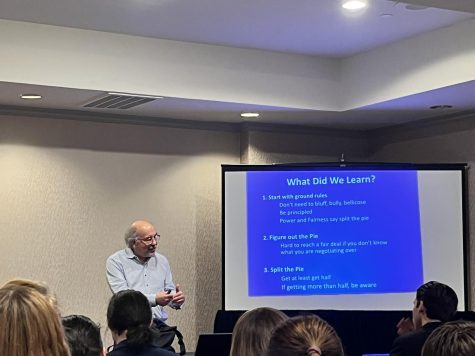
After my last committee session, I asked the head Chairs of my delegation for feedback. To my surprise, they told me that I had done an amazing job and that it seemed like I only spoke when I had something meaningful to say, not just for the sake of participating in the debate. I believe that this is because I spoke with not only conviction but also accuracy. Many other delegates made speeches without knowing what they were going to say. That’s why I wrote down everything I was going to say before I spoke.
When you speak, make sure what you’re saying is correct—and say it with conviction. If anyone doubts you, stand true to your opinion and respond respectfully.
That weekend, I learned many things, but the most important was the importance of raising my hand and asking questions to further my understanding and knowledge. Sometimes it can feel scary to ask questions. It can certainly feel intimidating for me to ask my teachers things that my peers might know. But if you just put yourself out there and raise your hand, you’ll learn so much more than if you just stay silent. After all, the best learning occurs when we don’t know the answer.
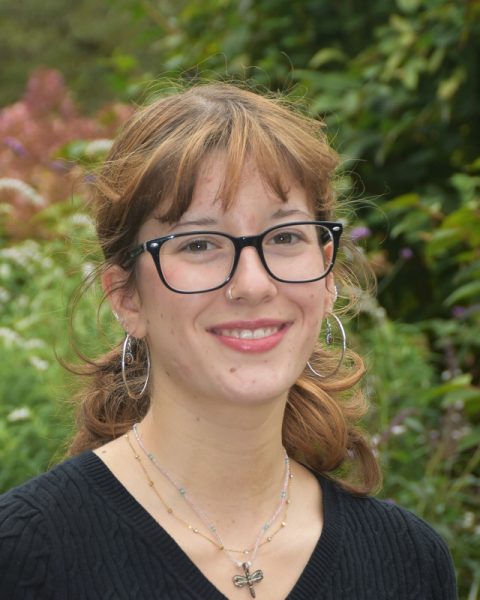
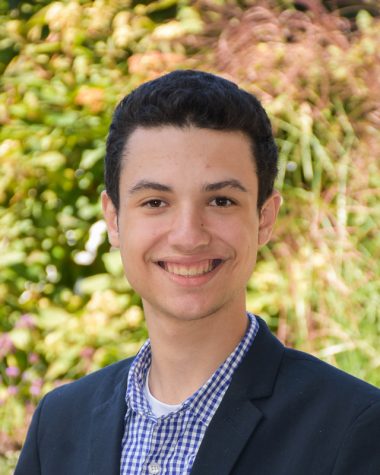
Evan is passionate about saving the environment and learning geography. When he is not writing articles for The Gator, he enjoys watching and playing sports, especially baseball.




















































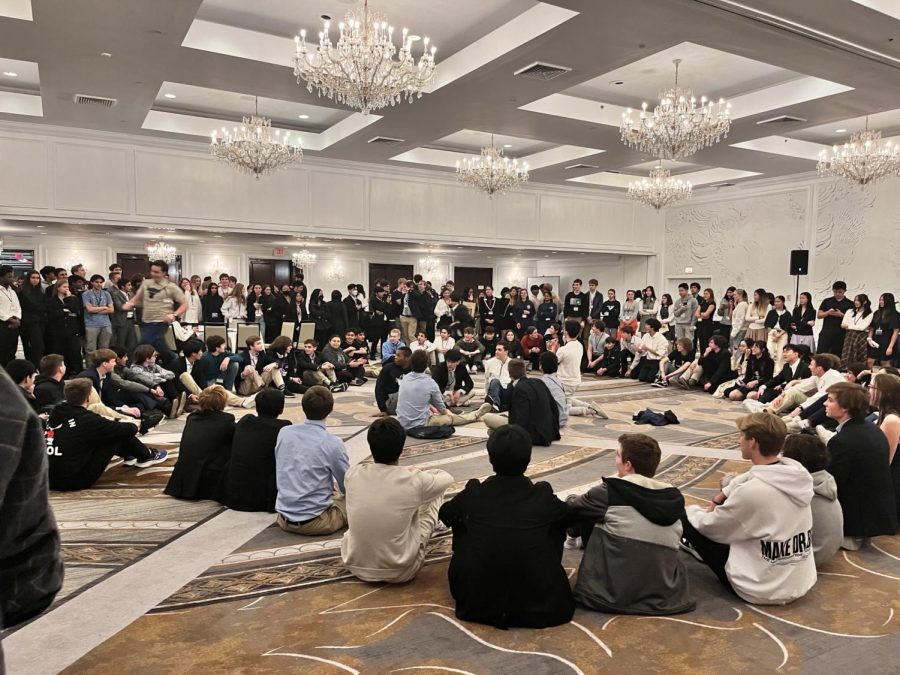

Joseph Iuliano • Feb 2, 2023 at 8:57 am
Amelia — This is a very thoughtful reflection of what sounds like (and I know to be, having chaperoned in the past) and was a wonderful event for experiential learning at YMUN. You have captured your experience well here and put us in the conference room with you. Thank you for sharing your thoughts and experience in The Gator.